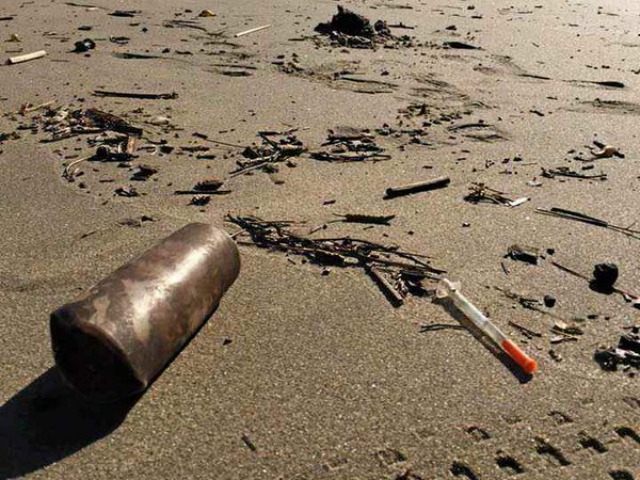Powerful surf brought on by El Niño has caused thousands of syringes to wash ashore at Santa Cruz beaches.
Local public safety advocacy group Take Back Santa Cruz told NBC affiliate KSBW that over the past 38 months, 9,694 needles were found washed up on area beaches, and seven people have been stuck by needles. The group’s Needle Solutions Team tracks the number of needles found in local parks and other public places.
“We have a drug problem in Santa Cruz and we’re not going to stop tracking needles and showing what the result is,” the group’s leader, Analicia Cube, told the outlet.
Take Back Santa Cruz has been regularly cleaning area beaches since at least July 2014, when the group deployed “needle sifters” to comb beaches for syringes. Earlier that year, Santa Cruz’s Seabright Beach was forced to close for nearly four hours after dozens of used syringes washed ashore.
In June 2014, community leaders met with local law enforcement, health, and public safety officials to discuss the scope of Santa Cruz County’s drug and alcohol addiction problems. Research provided at the meeting revealed that the county struggles disproportionately with those issues.
In April 2013, Santa Cruz County began administering the Syringe Services Program (SSP), a program that allows injection drug users to obtain free or low-cost needles. The program was designed to prevent the spread of infectious diseases and to help curb the frequency of improperly discarded needles.
But Take Back Santa Cruz claims that many of the needles washing ashore at local beaches originated from the SSP. The group told KSBW that it wants the SSP program to begin labeling its needles so that residents can see the degree to which the county is involved in creating the problem.
“Based on the frequent presence of other items from the SSP such as water capsules, cookers, and alcohol wipes, we conclude that a significant number of needles found in public spaces likely originated from the SSP (and obviously were not returned for exchange.),” the group wrote in its January report. “However, there are other needles being found that do not match those given out by the SSP, so there are presumably other sources of discarded needles.”

COMMENTS
Please let us know if you're having issues with commenting.